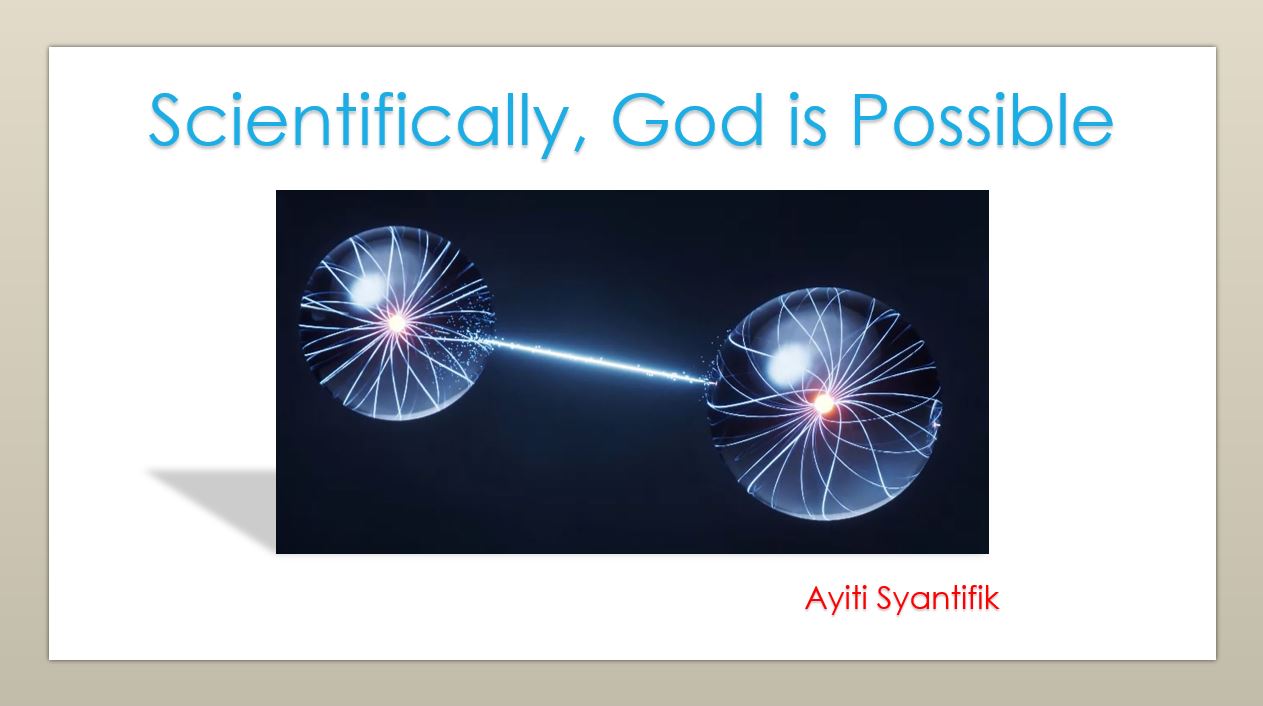Ayiti Syantifik
[This title in itself will make me many ‘enemies,’ Religious and Agnostics alike may find it heretic.]
A young scientist, pausing after reading a paper on how ‘Genetics analysis confuses Biology,’ gazes through the window of his lab. On the other side of the road, he sees a woman with a blowhorn blazing the usual street sermon: ‘Jesus is coming soon! Confess your sins and Repent before it is too late.’ He shakes his head, closes his blinds, and feels pity for the woman. This poor woman’s mental health might be in decline, he thinks. In his world, God does not and cannot rationally exist, a viewpoint that prevails in the scientific community.
On the seventh floor of the same building where the young scientist works, another middle-aged scientist spends his days (and sometimes nights) studying the tiny particles inside what we thought were the most minuscule particles ever, the atom. Unknowingly, his work in the Physics department is producing evidence, or at least circumstantial evidence, that the God people have been talking about for thousands of years possibly exists.

What is Physics, the most dry and unspiritual branch of science, telling us to justify my assumption, shared with many great scientists, that God’s existence is rationally possible?
Science tells us that this woman’s brain preaching on the street is possibly directly connected with God’s mind. You are probably quick to think this is impossible; however, a branch of physics called “Quantum Physics” tells us that atoms, lightwaves, and other small particles are often entangled. Changes that happen to a particle on Earth, for example, exactly result (or correspond to) similar changes of an entangled particle, say on Jupiter. This revelation highlights the possible intersection of science and spirituality.
What? Is that science? Yes, it is. Read about entanglement; you will be amazed. Many rigorous experimental works that have been conducted over decades confirm the existence of quantum entanglement, solidifying it as a fundamental aspect of quantum mechanics. Understanding those very complex experiments is beyond the comprehension of most people. I am one of them. You, too, maybe. It takes a little ‘faith’ (Pun intended) in the integrity of the scientific community to trust the validity of concepts we cannot fully comprehend. Open-mindedness and critical thinking come into play, inspiring us to challenge our scientific minds to explore beyond our current understanding.
The woman on the street believes God can hear her; she may even claim to have heard God’s voice talking to her. The scientist is prone to think that this is a sign that her dementia is progressing. Quantum Physics says otherwise. Although, in many cases, that ‘might’ be the case, it is also possible that an entity we call God is truly in contact with the lady through quantum entanglement.
Can God be everywhere at the same time? Most believers have raised this question in some form or another. Our daily experience dictates that a being cannot be in different locations simultaneously. Here again, Quantum Physics comes to the side of religion. The concept is known as Delocalization. According to Quantum Mechanics, particles are not confined to specific locations. Instead, they are spread out over regions of space, with probabilities of being detected in various locations within those regions. Again, these concepts may be too complex for our untrained minds to comprehend; however, the scientific community, even those not experts in this complicated area of science, validate their claims. Moreover, applications of these ‘esoteric’ ideas prove they are not just ideas. Quantum computers are convincing pieces of equipment of the reality of Quantum physics.
Religious people instinctively believe in God. They cannot and need not scientifically prove the existence of God. They cannot and need not prove that God answers their prayers, protects them, and adds meaning to their lives. However, it is refreshing to know that science may have to revise the way they characterize religious beliefs as “magical thinking,” a term implying a complete lack of logic in the way religious people view the world.
Jean Garry Cantave
8/31/2024





